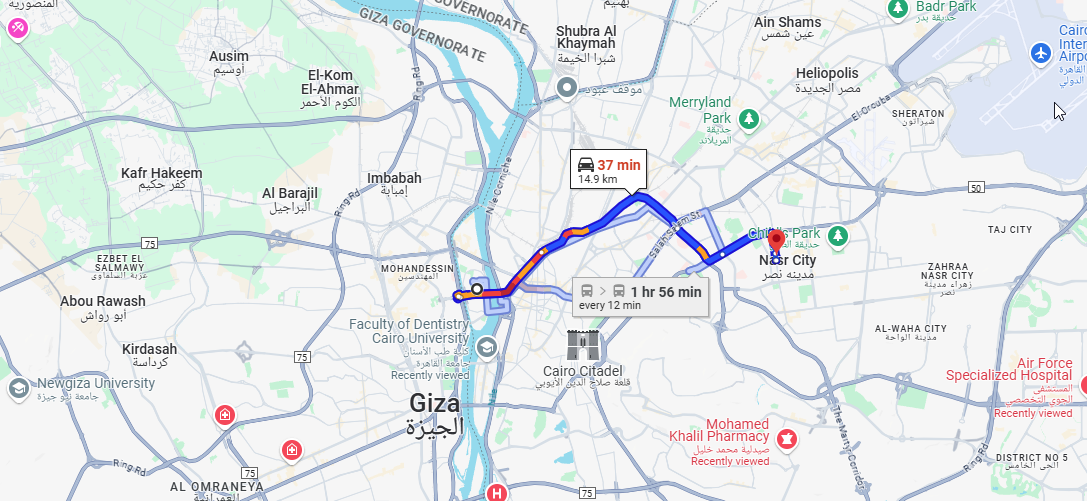👨⚕️ Dr. Wael Gaber
Consultant in General Surgery, Oncology, and Bariatric Surgery
Qualifications and Specialties
Dr. Wael Gaber is an outstanding consultant in general surgery, oncology, and bariatric surgery, specializing in laparoscopic surgeries. He has extensive experience in performing surgeries using the latest laparoscopic techniques to achieve the best therapeutic outcomes. Dr. Wael focuses on providing high-quality medical care using advanced medical technologies that facilitate recovery and offer innovative solutions for patients.
🎓 Qualifications and Specialties
PhD in General Surgery
Member of global and local medical societies
Egyptian Society of Surgeons
Egyptian Society of Oncological Surgeons
Egyptian Society of Laparoscopic Surgeons
Specialized in Bariatric and Oncological Surgeries
Utilization of modern laparoscopic techniques to ensure the best results and shortest recovery time for patients.
💉 Medical Services Provided
Dr. Wael Gaber offers a wide range of specialized surgical services, including:
🩺 Gallbladder Removal by Laparoscopic Surgery
A modern surgery to remove the gallbladder using laparoscopic techniques, which reduces pain and accelerates recovery.
🔪 Appendectomy by Laparoscopic Surgery
Removing the appendix via laparoscopic surgery to reduce recovery time and prevent complications.
⚖️ Bariatric Surgeries
Sleeve Gastrectomy: Removing part of the stomach to limit food intake.
Gastric Bypass: Rerouting the food path to reduce calorie absorption.
💉 Varicocele Ligation by Laparoscopic Surgery
A procedure to alleviate pain and swelling caused by varicocele using laparoscopic surgery.
💊 Colon and Gastrointestinal Tumor Surgeries
Removing tumors from the colon or gastrointestinal tract using laparoscopic techniques, minimizing damage to surrounding tissues.
🎗️ Breast Tumor Surgeries
Removing abnormal lumps or tumors from the breast using advanced surgical techniques.
🦋 Thyroid Gland Surgeries
Removing or part of the thyroid gland when it has tumors or is overactive.
🏃♂️ Inguinal Hernia Repair by Laparoscopic Surgery
Repairing the hernia using laparoscopic techniques to reduce surgical wounds and speed up recovery.
🍑 Hemorrhoidectomy and Anal Fissure Surgery
Performing surgeries to treat hemorrhoids and anal fissures using advanced surgical techniques to minimize pain.
👣 Diabetic Foot Surgeries
Performing surgeries to treat diabetic foot complications to prevent gangrene or amputation.
🩺 Splenectomy by Laparoscopic Surgery
Removing the spleen using laparoscopic surgery, a less invasive and safer method.
📍 Dr. Wael Gaber's Clinics
Dr. Wael ensures that his clinics are conveniently located to provide exceptional care for his patients:
🏢 Nasr City
20 El-Tayaran Street, after Cook Door, before Kentucky, next to Be In Sport, Heya Clinics, Ground Floor
📍 Google Maps link
🏢 Madinaty
Medical Center No. (1), South Sector next to South Park, First Floor - Daktori Clinics
📍 Google Maps link
🏢 Shorouk
Town Center Mall in front of Green Hills Club, Second Floor - Clinic No. 228, Star Medical Clinics
📍 Google Maps link
🏢 New Cairo (Fifth Settlement)
HCC-HEALTH CARE CITY-5th Settlement, New Cairo
📍 Google Maps link
📞 Contact Information
☎️ Phone: 01207201000
💬 WhatsApp Link: Dr. Wael Gaber on WhatsApp
⏰ Working Hours: Daily from 10 AM to 8 PM.
🏅 Commitment to Comprehensive and Integrated Care
Dr. Wael Gaber adheres to the highest standards of comprehensive care, ensuring the provision of the best surgical and preventive services. His focus is on:
📊 Accurate Consultations: Providing comprehensive and precise consultations to patients about their treatment options.
⚕️ Advanced Surgical Techniques: Applying modern laparoscopic techniques to reduce complications and accelerate recovery.
🏃♂️ Short Recovery Times: Ensuring rapid recovery and minimizing pain for patients.
💡 Innovative Solutions: Offering tailored solutions to enhance patient quality of life.
🌍 Importance of Dr. Wael Gaber's Consultations
Early Tumor Diagnosis: Early diagnosis plays a critical role in treating cancer, and Dr. Wael specializes in this area with a high level of expertise.
Continuous Improvement: Dr. Wael is committed to enhancing his skills and updating his techniques regularly to keep up with medical advancements.
💬 Inquiries and Appointment Booking
To schedule an appointment or get a medical consultation, feel free to contact Dr. Wael Gaber via phone or WhatsApp. We are always here to offer you the best healthcare!
This extended version in English provides a detailed overview of Dr. Wael Gaber's services, specialties, and contact information, ensuring a complete and professional presentation of his expertise.



